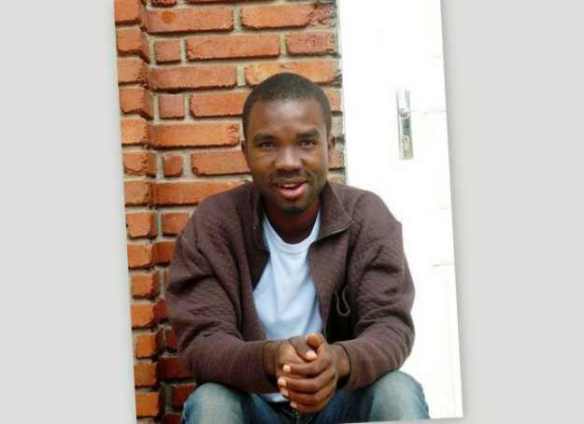On the evening of July 15, 2013, the lifeless body of human rights defender and journalist Eric Ohena Lembembe was found at his home in Yaoundé.
Read Eric Ohena Lembembe’s story
Eric Ohena Lembembe was the Executive Director of Cameroonian Foundation for AIDS (CAMFAIDS) an advocacy group fighting against AIDS and for the human rights of LGBT people in Cameroon. He was working in collaboration with several organisations such as Alternatives Cameroun and the « Association pour la défense des homosexuel-les » (ADEFHO). He had contributed in particular to the preparation and the dissemination of a report published by Human Rights Watch in March 2013, and had addressed recommendations during the Universal Periodic Review of Cameroon in front of the UN Human Rights Council in May 2013. He also contributed to the blog Erasing 76 Crimes and had taken part in the writing process of the book “From Wrongs to Gay Rights”.
“Eric was an inspiring activist whose work was deeply appreciated by human rights activists in Cameroon and around the world. Advocating for equal rights in Cameroon, where LGBTI people face severe discrimination and violence, takes tremendous courage. Eric’s activism paved the way for a society based on equality and non-discrimination.” Neela Ghoshal, HRW senior LGBT rights researcher
“Some pictures on Eric’s Facebook page which, like a footprint of someone who passed this way a long time ago, remains another kind of marker. It shows the face of a brave young man in the very apartment where he was killed. It shows the many people and issues he concerned himself with as Executive Director of CAMFAIDS and the fragments of a life yet unfinished.” Albert Ogle, 76 Crimes
Eric Ohena Lembembe was found murdered in his home, at Yaoundé, on July 15, 2013. Lembembe’s friends discovered his body after being unable to reach him by telephone for two days. They found his front door padlocked on the outside, but could see Lembembe’s body lying on his bed through the window. Lembembe’s friends alerted the police, who broke down the door. According to the testimonies, his attackers beat him to death, his neck and feet were apparently broken, his face, his hands and his feet burnt with an iron.
Status of Investigation
Initially assigned to the police station of the 1st district of Yaoundé, the investigation was then carried out by the National Security Central Administration, before finally being transmitted to an investigating judge who, one year after the murder, had only summoned Eric Ohena Lembembe’s mother, sister and brother in a procedure and by means of actions which contain numerous irregularities: no photo nor fingerprint was taken at the scene of the crime; the medical certificate indicating the nature of the death failed to mention the burns and other injuries visible on Eric Lembembe’s body, etc.
Simultaneously, the family and relatives of the victim faced what can be qualified as intimidation. Several friends as well as Eric Lembembe’s family were placed in custody by the police at the very beginning of the investigation; the interrogation of the relatives and witnesses summoned by the investigating judge was then delayed despite the attempts and reminders of the lawyers of the civil party, etc.
“The Cameroonian judiciary must absolutely undertake a fair and honest investigation on Eric Lembembe’s murder. Claiming that Eric is responsible for his own murder is insulting. Nobody deserves to die because of his identity or that of the person he loves.” Dominique MENOGA NANGA, founder of CAMFAIDS
